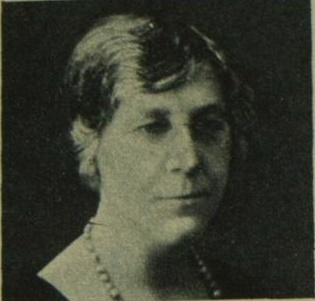Eleanor Stewart (born 28 May 1889) was a Scottish trade unionist and political activist. Born in Denistoun, Glasgow, she was the daughter of Alexander Stewart, a journeyman brush maker, and his wife Mary Ann Rutter Smith. Little is known of Eleanor’s early life until her appointment as a delegate to the Scottish Trades Union Congress (STUC) in 1916, and her subsequent appearance before a magistrate’s court alongside Helen Crawfurd, Willie Gallacher, and Emanuel Shinwell, for taking part in a demonstration against the wartime deportation of shop stewards.[1]
Eleanor was appointed the Women’s Organiser for the Workers’ Union in 1917, and a member of the executive committee of the Scottish area of the Labour Party. She was involved in the Scottish Committee on Women’s Training and Employment, and in 1920 she was the first Labour woman to be elected to Glasgow City Council, representing Maryhill, but she lost her seat the following year.[2] She stood in Edinburgh North at the 1924 and 1929 United Kingdom general elections, but was not elected.[1]
The Workers’ Union joined with the Transport and General Workers’ Union, but Eleanor continued as its Scottish women’s officer, remaining active at the STUC, where she promoted equal pay and the introduction of a minimum wage. She was a founder member of the STUC’s Women’s Advisory Committee,[1] which she chaired from 1933 to 1935, and from 1943 to 1948.[3]
Eleanor was a member of the National Executive Committee of the Labour Party from 1933 until 1944, serving on a variety of government committees. She was made a Member of the Order of the British Empire (MBE) in 1947, but by 1954 her name had disappeared from the public record; even the date of her death is unknown, and no obituary was ever published: “Although she is now forgotten, in her lifetime Eleanor Stewart spoke up strongly on behalf of women.”[1]

